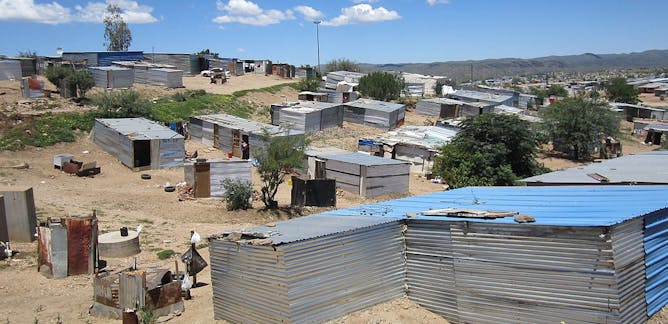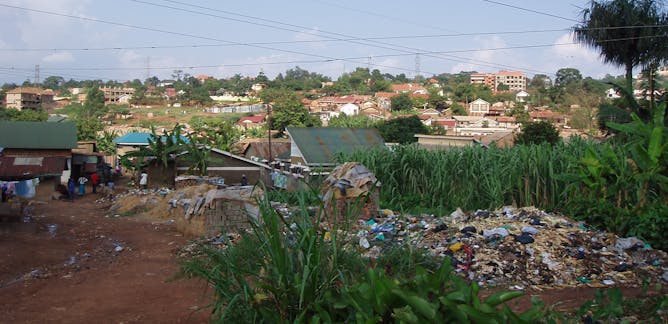|
In parts of Nigeria men with dreadlocks are considered dangerous. This bias is deeply rooted in traditional religious beliefs and myths, especially those of the Yoruba and Igbo people. Adult men with dreadlocks are perceived as volatile and dangerous. But unlike adult males, children born with knotted hair are revered and welcomed as a gift of the gods. And Nigerians who have made names for themselves as famous musicians and soccer stars are excused for having dreadlocks because of their status. Augustine Agwuele unpacks this complex relationship between Nigerians, dreadlocks, and those who wear them.
South Africa’s government is still trying to deal with the diplomatic fallout that’s followed a new wave of attacks on migrants from elsewhere in Africa in some of the country’s major cities. President Cyril Ramaphosa has sent special envoys to the countries whose citizens were mostly affected by xenophobic violence - Nigeria, Niger, Ghana, Senegal, Tanzania, the Democratic Republic of the Congo and Zambia. Mashupye Herbert Maserumule says this was a good start, but that Ramaphosa must do more to re-establish South Africa as a genuine voice of pan-African unity.
Also today:
|

Flavour, a popular Nigerian musician, can wear his dreadlocks in peace because they are seen as a temporary fashion statement.
Elizabeth Farida/Wikimedia Commons
Augustine Agwuele, Texas State University
Nigerian men who wear their hair in knots are not a new phenomenon, but the hairstyle's spiritual heritage sparks fear in the hearts of many.
|
Politics + Society
|

Mashupye Herbert Maserumule, Tshwane University of Technology
Xenophobia negates the spirit of pan-Africanism, especially its ideal that Africans share a mutual bond, regardless of their geographical location.
| |

Selma T. Karuaihe, University of Pretoria
Urban dwellers who live in informal city settlements have limited access to basic services, and many of them don't own the land they live on.
|

Lucia Hussey, Western University
Climate change is anticipated to cause a rise in the incidence of several diseases in sub-Saharan Africa.
| |

Flora Pidoux, Université de Montréal
At first glance, it would seem like nothing has changed since 1991. Yet, things have been slowly and discreetly evolving in recent years at Morocco's behest.
|
|
|
En français
|

Shuaib Lwasa, Makerere University
Dans les zones urbaines défavorisées de Kampala, un réseau de petites structures valorisent les déchets pour en faire des briquettes combustibles.
| |

Eric Oliver, Dalhousie University
Les collectivités côtières aident les scientifiques à comprendre les impacts des vagues de chaleur marines et à trouver des solutions.
|
|
|
From our international editions
|

Martin Beck, University of Southern Denmark
Coalition negotiations begin in Israel after neither Benjamin Netanyahu nor Benny Gantz secure a majority.
| |

Ben Rich, Curtin University
Iran's goal is to sow discord and inflict pain on energy markets, while avoiding crossing a threshold that prompts retaliation from the US. This is a fine line to walk at the best of times.
|

Kate Burridge, Monash University; Howard Manns, Monash University
We may no longer say ‘shiver me timbers’, but we still use plenty of pirate words for other things.
| |

Thomas Saltsman, University at Buffalo, The State University of New York
Freedom of choice is a pillar of Western culture. But can too much of it be a bad thing?
|
|
|